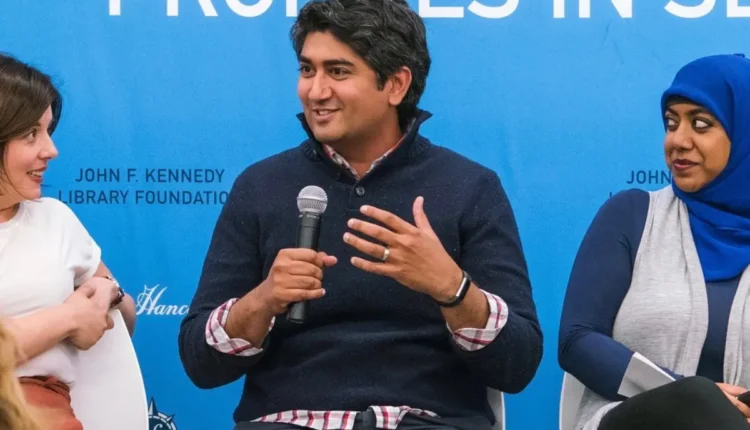In the dynamic landscape of global work, Aneesh Raman emerges as a visionary leader, currently serving as the Vice President and Head of The Opportunity Project at LinkedIn.
His multifaceted career, from being CNN’s first correspondent in the Middle East to contributing to President Barack Obama’s speeches, reflects a commitment to expanding economic opportunities and fostering adaptability in the workforce.
Aneesh Raman’s Early Ventures
Aneesh Raman’s career journey began with a local Emmy Award for anchoring “Kids Talk Sports,” a testament to his early passion for communication. His trajectory took an international turn when he became CNN’s first correspondent in the Middle East, reporting extensively on Iran’s nuclear ambitions and the sentiments of the people towards their government.
His experiences in Iraq during the volatile Iraq War, including being the first to announce Saddam Hussein’s execution, showcased his dedication to comprehensive reporting in challenging environments.
Transition to the Obama Administration
Raman’s career took a political turn as he joined Barack Obama’s presidential campaign, ultimately becoming a speechwriter for Treasury Secretary Timothy Geithner during the 2008 financial crisis.
His insights into the inner workings of the White House and the complexities of immigration reform are chronicled in his contributions to books like ‘West Wingers’ and ‘My Life: Growing Up Asian in America.’
A Vision for Economic Opportunity at LinkedIn
Now at LinkedIn, Aneesh Raman spearheads The Opportunity Project, aiming to create a more efficient and equitable labor market. His focus on skills-first thinking aligns with LinkedIn’s mission to adapt to the changing nature of work.
Raman’s belief that adaptability is the key to agency in this era of rapid change is substantiated by LinkedIn’s research, revealing a 65 percent change in job skills by 2030.
Insights on Adaptability and the Future of Work
In a recent episode of Microsoft’s WorkLab podcast, Raman emphasized the transformative impact of generative AI on work. LinkedIn’s data underscores that 25 percent of job skills have changed in the past eight years, with a projected 65 percent change by 2030.
Raman advocates for building adaptability as a core skill, asserting that in times of significant change, managing it requires developing the muscle of adaptability.
Soft Skills in the Spotlight
As AI advancements shift the employment landscape, Raman predicts a diminishing emphasis on job titles and college degrees. Instead, he envisions a skills-first mindset among employers. Soft skills, such as communication, creativity, and adaptability, are becoming increasingly valuable.
LinkedIn’s research indicates that 72 percent of US executives consider these skills more important than AI skills. Raman anticipates a more human-centered world of work, where people skills take center stage for individual career growth and collaborative success.
Leadership Lessons from Aneesh Raman
For leaders navigating the evolving work environment, Raman offers valuable advice. Clear, compassionate, and empathetic communication is paramount. In a world where people skills are pivotal, effective collaboration becomes central to company growth. Raman’s vision encourages leaders to prioritize the development of these interpersonal skills.
Also Read : Karan Brar: Navigating Hollywood, Identity, and Mental Health

